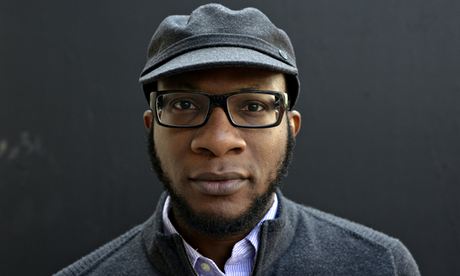
Nigeria is one of the world's most complex, chaotic and corrupt countries, but it also has an incredibly dynamic, assertive and enterprising population. Put these qualities together and it's clear to see why so many Nigerians have written so well about their homeland. Every Day Is for the Thief is one such book.
Although described as a work of fiction, it is neither plot- nor character-driven and reads more like a travelogue. The narrator is an unnamed Nigerian man who briefly returns to Lagos after 15 years in America. The book begins with the bribery he experiences at the Nigerian consulate in New York, then again on arrival at the airport in Lagos, and finally by traffic police en route from the airport into the city. Upon arriving at his aunt's house, the electricity goes off without warning, as it does frequently in the entire country.
Internet money scams are next on the agenda, and the narrator visits one of the hundreds of internet cafes that did not exist before he left Lagos. Young men sit for hours in the glare of computer screens, illegally targeting their international victims. They ignore the warning sign telling them not to do so, as well as the policeman stationed at the entrance who, of course, is bribed if he does manage to catch anyone.
Other topics include traffic congestion, transport and the streets where people "roam around looking for victims". In order to survive, Lagosians have to adopt a swagger of "undiluted self-assurance". Also covered are home invasions, where armed robbers break into peoples' houses, sometimes killing the owners. This happened to a friend of the narrator's family. Then there is a "necklacing" incident he hears about in a market, where six weeks earlier an 11-year-old thief was caught by a mob who stripped him, doused him in petrol, threw a car tire over him and watched him burn.
Some critics of recent African writing despair at the domination of books that depict just this kind of society – brutal, especially towards children, lawless, filled with horror upon horror, and pandering to western media stereotypes. Meanwhile, other African narratives barely surface. Yet the worst excesses of human behaviour are a rich source of material for writers. As the narrator says: "It is an appalling way to conduct a society, yes, but I suddenly feel a vague pity for all those writers who have to ply their trade from sleepy American suburbs, writing divorce scenes symbolised by the very slow washing of dishes."
While the author attempts to analyse Nigeria's problems, he is relatively light on the biggest problem of all – the government. Then again, for a Nigerian writer it is politic to steer clear of politics unless you want to end up in prison, or dead like the Igbo writer Ken Saro-Wiwa.
Cole's previous book, Open City, followed a mixed-race Nigerian-German student psychiatrist around Manhattan and Brussels. This current book is also about a mixed-race student of psychiatry but there are major differences. Whereas Open City was a powerful, intellectual and philosophical work that disrupted stereotypes, it also appeared heavily indebted to the strikingly original prose style of the late WG Sebald. Every Day Is for the Thief is a slighter and more predictable work, but the writing is still impressive, with some memorable scenes and insights. Most importantly, it feels completely germane to the culture and character.
Bernardine Evaristo's latest novel, Mr Loverman, is published by Penguin

